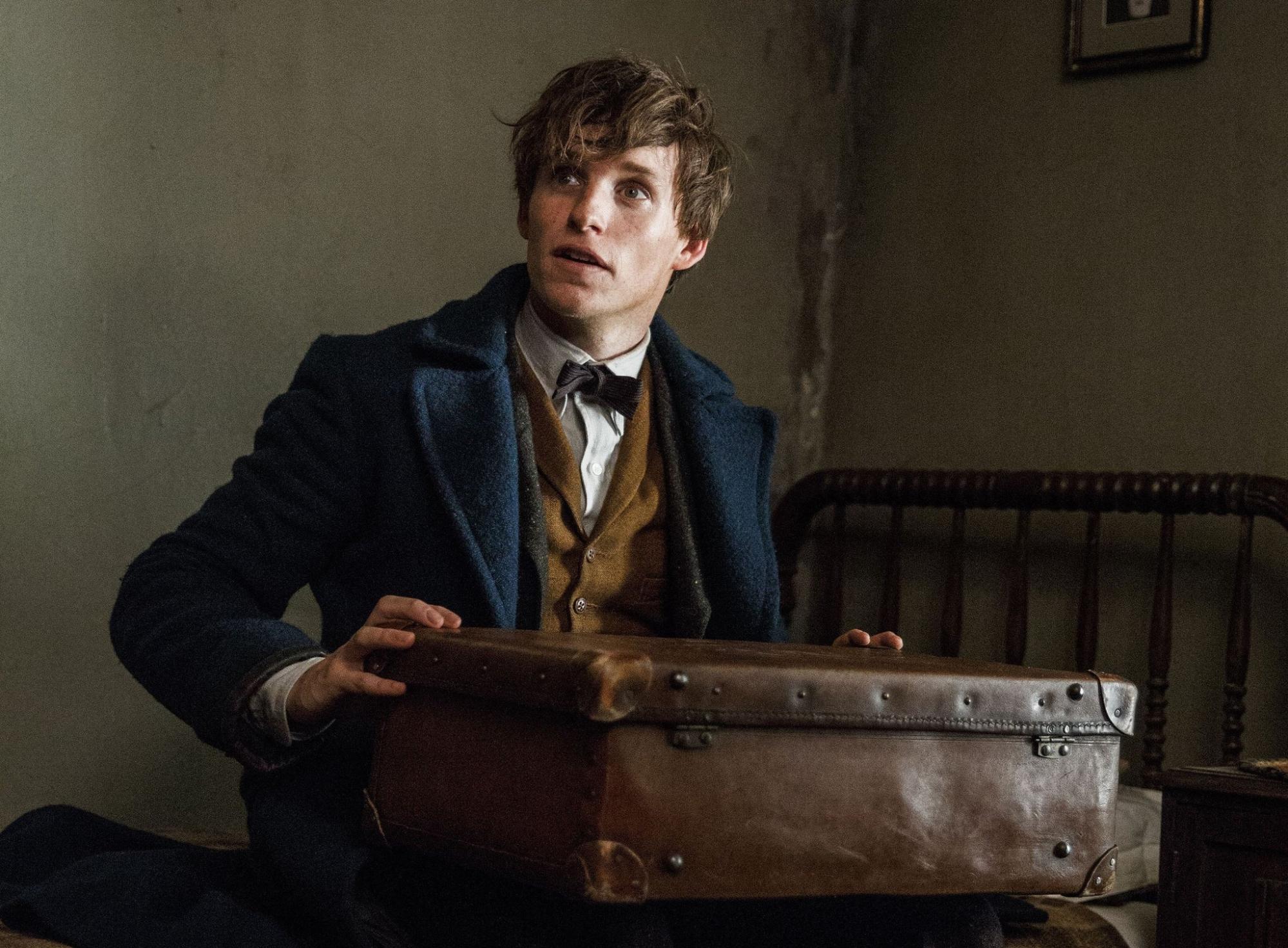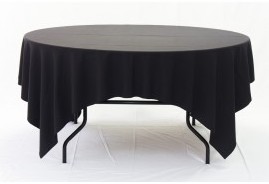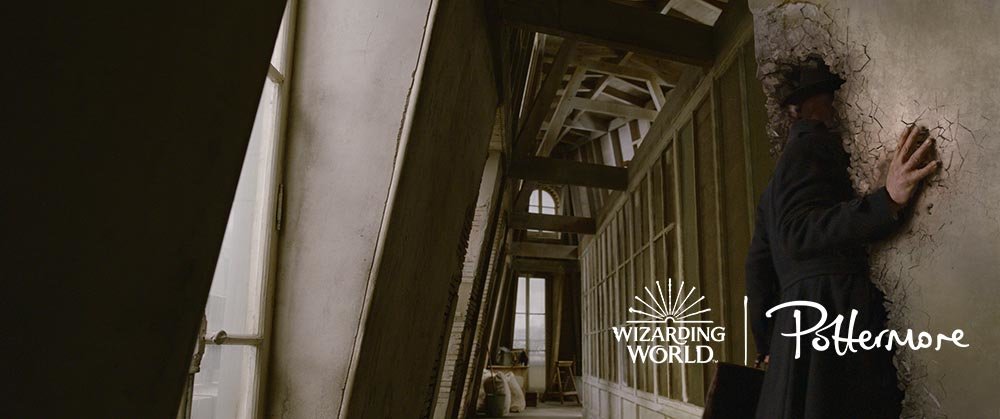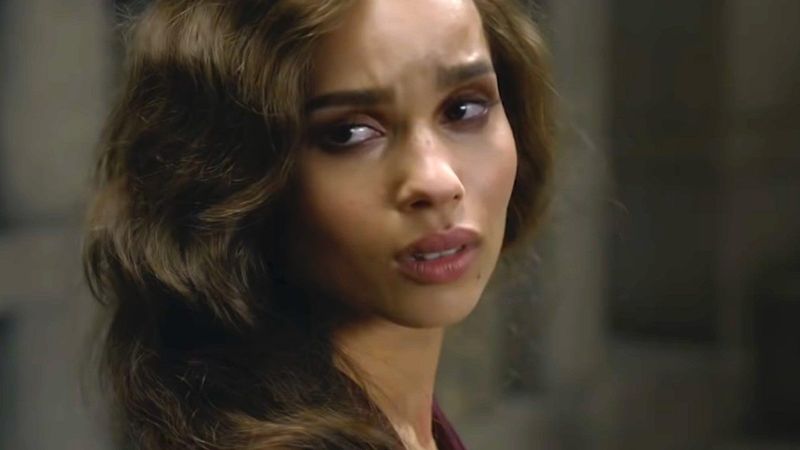Written by: Koh Ze-Wen
Creatures, magic and mystery galore! This Fantastic Beasts sequel spends its screentime whipping around fast-paced action scenes and chocks itself full of Easter Eggs with such rapid succession that it masks its (sadly flimsy) plot with delightful entertainment. As a devout Harry Potter fan, watching Fantastic Beasts: The Crimes of Grindelwald over the weekend left me with a lot of Thoughts™ I’m eager to share.
As a whole, I found the movie entertaining and its lead compelling enough to empathise with, although its story leaves something to be desired. To be fair, as someone who’s always read the Harry Potter books obsessively, any movie set in the universe is sure to charm me to a degree, so I’m proclaiming my bias in advance. I’ll split this review into the Good, the Bad and the Ugly: Beware – ahead lies spoilers!

The Good:
Eddie Redmayne is charming as ever as (definite Hufflepuff) Newt Scamander, who plays a pleasantly non-traditional male lead. He’s quietly snarky and stands up to the antagonists with dogged determination, but the franchise repeatedly emphasises that his greatest virtue as a hero, above all else, is his limitless compassion. At one point, a character even bitterly notes, “there’s never been a monster you couldn’t love”, which (although arriving from a crazily convoluted plotline) is a nice reaffirmation of character.
Indeed, in an era of dashing, cocky action heroes, Eddie Redmayne’s acting shines in a character who can never quite meet his companions’ eyes and who spends every conversation fiddling with his coat. I can certainly appreciate seeing a hero who doesn’t solve all of his problems with explosions and angry badassery, and whose constant nervous energy reminds me of my own.

Jude Law’s acting as Dumbledore also grants a tick in my book. The man has just enough playful charm to mirror his elderly quirkiness, and the trademark constipated expression to pull off looking like he has some very complicated internal pain hidden away (and who wouldn’t, with an old crush running off to be a crazy fascist? Enough to give anyone a complex).
The soundtrack doesn’t have very notable tracks (although there are some good choir cues during emotional scenes that amp up the feeling), but one instance does stand out in particular. About halfway through the movie, the scene cuts to a castle by a lake, and then the instantly recognisable Harry Potter theme plays with full force. I could audibly hear everyone in the cinema gasp with excitement and sit forward in their seats as we’re brought to Hogwarts. Iconic.
Unfortunately, my list of pros for the movie ends here.
The Bad:
First of all, the magical realism! Some elements of the magical world certainly feel cheapened – spells range from looking ridiculous to being ridiculous. There’s a moment that sets up the final, climatic arc of the movie where Grindelwald’s equivalent of Morsmordre is supposed to be cast – you know, the call for all his followers to rally behind him! But instead of an imposing death omen à la Voldemort, it’s just what looks like giant black tablecloths flying across the sky and being draped across all of Paris.

The scene granted incredulous laughter from everyone in the theatre. It looked like Grindelwald was a tailor sick of working for Hot Topic.
Any scene involving the Muggle world (or No-Maj – basically the world of us regular boring people) also taints your suspension of disbelief. We’re always told that magic is something illicit and to be hidden, but in this movie, Grindelwald strides around Muggle Paris after escaping arrest in broad daylight, and entrances to the magical world are in broad open squares. Magic apparently just happens, uh, everywhere? All the time? Nobody cares?
Everybody in this movie seems crazily overpowered as well. Obviously, eager fans of the HP universe were looking forward to new spells, new creatures, new elements of magic, but characters seem to all be able to perform wandless magic and do whatever the plot demands at the moment. One guy just turns and walks through a wall. Seriously. Wizards can astral project now.

On a more serious criticism, the characters we started off with in the first film feel like they’ve been left on the wayside and are just there to serve as plot continuity. Newt, for all that he is supposed to be the protagonist, seems to just wander around until, oops: war. Even his involvement in looking for Credence is kickstarted by him wanting to reconnect with Tina (The Love Interest™), who, by the way, spends this entire movie doing basically nothing (granted, the salamander scene was certifiably adorable).
At its worst, Crimes of Grindelwald feels like a film saddled with too many characters in its ensemble cast for it to juggle.
The Ugly:
This is going to sound harsh, but basically everything about the plot. The story is so convoluted and clunky that when written down point-to-point it doesn’t seem to make any sense.
The movie works hard to sell the character of Leta Lestrange as a tragic martyr, but everything she does is so removed from reality that it’s difficult to empathise. When my parent neglects me in favour of a baby, I, too, like to play let’s-swap-children during an evacuation. When we could all escape unharmed from a crazy fascist, who doesn’t want to walk dramatically into the fire while two ambiguous love interests yell in Man Pain?
The end result is that the Lestrange family backstory is both badly-written and unnecessary, and exists solely to tie Leta into the existing conflict. The movie is forced to spend even more screentime not on the present development of relationships between these characters, but on lengthy exposition in what looks (and feels) like the Regency era. It’s even more frustrating because Leta Lestrange is a character with so much potential to explore. Instead, she’s relegated to becoming a one-dimensional character that’s haunted by an incident so complicated it’s designed to simultaneously absolve her of guilt and plague her with it.

So much of the backstory of this movie just seemed to make no sense. Yusuf Kama’s father (a powerful rich pureblood) is apparently powerless to stop Mr. Random White Guy swooping in to hypnotise his wife. Credence Barebone is dangerous without Love and A Place to Belong, which Newt is apparently qualified to deliver, but Actual Snake Girlfriend Nagini cannot provide. Meanwhile, he trusts Pasty Fascist Johnny Depp to magically know the truth about his identity because, uh, he says so? Murderers are so reliable!
The film has high ambitions in its complexity, but it sadly falls short where a simpler, denser film would have succeeded. Nowhere is this more apparent than in the tone and pacing of the film, which varies wildly – Newt is essentially a romcom, family-film protagonist stuck in a grim, dark action film. I can’t even imagine any situation where Dumbledore’s best man to handle a violent fascist is… a magizoologist. It’s like throwing an environmental conservationist at the wizarding equivalent of Hitler. Eat plants, murderer!
Some parts of the film, like Queenie’s 360 degree personality change (are we really all going to ignore the fact that she… tried to force someone into marriage…), or Credence’s last-minute reveal as a secret Dumbledore do also feel strange and out of place, but I’ll reserve judgement until a next sequel.
Conclusion:
On the whole, Crimes of Grindelwald is a promising film overburdened by its convoluted plot and a massive cast of characters. With JK Rowling snapping up so many of the credits including screenwriter, one has to wonder if maybe the mother of this franchise has been granted too much creative control. If you’re a die-hard Potter fan or you’d just like a film that looks cool with fast-paced action, I’d still recommend you see the film while it plays in the theatre; but if you’re the type to care about, uh, logic… maybe wait until its DVD release.



